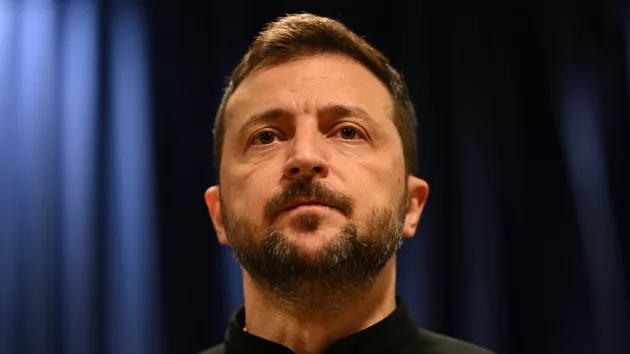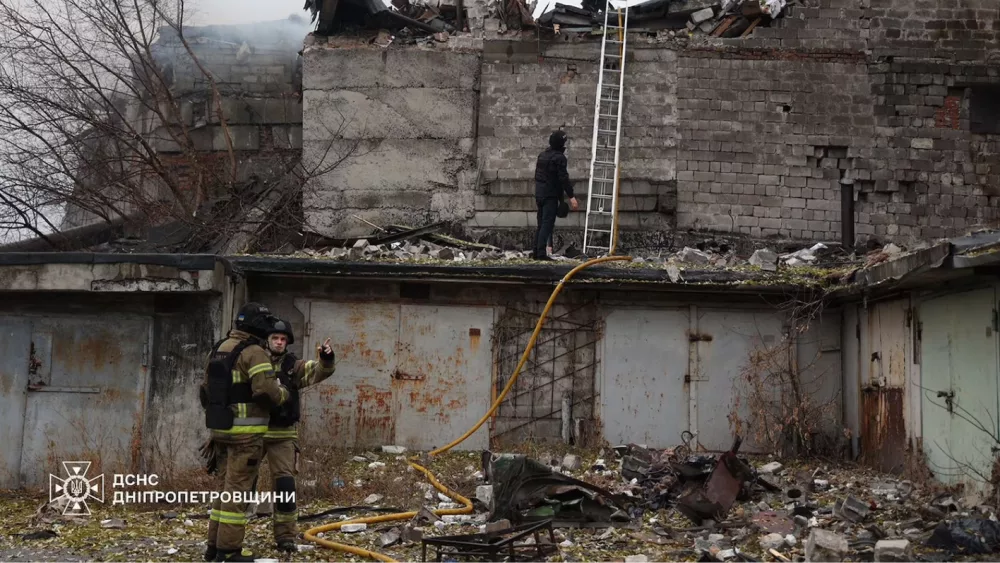
(LONDON) — As Ukrainian President Volodymyr Zelenskyy visits the White House on Thursday, the Biden administration is facing frustration from other western allies over its refusal to let Ukraine use western long-range missiles to strike deeper inside Russia.
The request is a priority for Zelenskyy that he is pressing for this visit, but so far the administration has seemed unyielding in its opposition. That has prompted unusual public expressions of frustration in recent days from some NATO countries.
The prime minister of Denmark, which has been a significant supplier of military aid, this week at the U.N. General Assembly said the public discussion of “red lines” had been a “mistake,” that is “simply giving the Russians too good a card in their hands.”
“It would be really good to stop the delays. And I think that the restrictions on the use of weapons should be lifted,” Prime Minister Mette Frederiksen told Bloomberg in a television interview.
Britain and France have both indicated they are ready to allow Ukraine to use their own long-range cruise missiles that they have supplied to hit inside Russia, but want the U.S. to give approval.
U.S. officials have briefed two key reasons for opposing the decision, saying they are concerned it could prompt Russian President Vladimir Putin to further escalate and that the strikes would make insufficient difference to the war, meaning the risk of escalation isn’t worth the military payoff.
Ukraine and some of its other key allies strongly disagree, arguing Putin is bluffing.
Zelenskyy in an interview with ABC News’ Robin Roberts for Good Morning America on Monday said Ukraine could use the missiles to hit airbases that Russia is using to drop hundreds of powerful bombs in eastern Ukraine.
Zelenskyy said he believed Britain, France, Germany and Italy were ready to allow the strikes but that the decision needed to come from the U.S.
“The main role is in the United States, in the president of United States, Biden. Everybody’s looking up to him, and — we need this to defend ourselves,” said Zelenskyy.
Putin has turned to loud nuclear saber-rattling in an effort to deter the U.S. from accepting Ukraine’s request. The Russian leader on Wednesday announced changes to Russia’s nuclear doctrine clearly directed at Ukraine and U.S. The changes said Russia will now treat aggression from non-nuclear states supported by nuclear powers as a “joint attack.”
Putin’s loud threats suggest that the Kremlin at least does not agree with the U.S. assessment that allowing Ukraine to hit targets deeper inside Russia will make little difference to the war.
The U.S. has provided Ukraine with long-range missiles known as ATACMS (Army Tactical Missile System) that have a range of nearly 190 miles. Amid the debate over whether to let Ukraine use them deeper into Russian territory, Russia has moved back most of its aircraft to bases out of range of the missiles, reducing their potential effectiveness.
Germany, another key ally for Ukraine, though has expressed opposition to supplying its own long-range missiles, despite Ukraine’s requests. Germany’s leader Olaf Scholz this week again reiterated that refusal, saying it is “not compatible with my personal stance … We will not do that.”
Some U.S. political figures have suggested Germany’s opposition is also a concern to the Biden administration.
Copyright © 2024, ABC Audio. All rights reserved.








